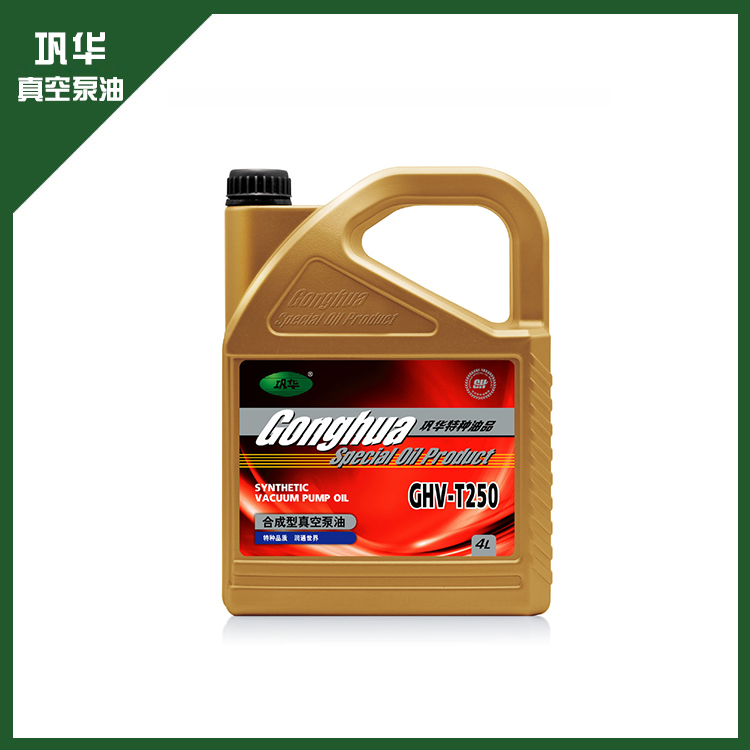
What are the guidelines for vacuum pump oil replacement and maintenance
Preparation :
1. Make sure the vacuum pump is turned off and cooled to room temperature.
2. Prepare new oil and the tools needed for replacement, such as wrenches, containers, etc.
Drain the old oil :
1. Remove the vacuum pump from the system and drain the old oil through the oil drain hole. Be sure to drain the oil before it cools down to prevent the oil from solidifying and causing clogging.
2. Place a waste oil collection container at the drain plug and ensure that the vacuum pump is vented to atmospheric pressure.
3. Unscrew the oil drain plug and drain the waste oil. When the oil volume is significantly reduced, briefly start the vacuum pump for a few seconds to drain more residual oil, and then drain again.
Flush the vacuum pump :
1. Use 50% paraffin or diesel fuel as a flushing agent and mix it in a ratio of 2 liters.
2. Unscrew the refueling plug, inject the flushing agent, close the air inlet, run the vacuum pump for at least half an hour and then drain the flushing liquid to ensure that the residual oil and impurities in the pipeline and cooler are completely removed.
Add new oil :
1. Unscrew the fill plug and fill with new oil to the specified level. The oil level should remain between the minimum and maximum marks.
2. Reinstall the fill plug and tighten, making sure it is leak-proof.
Check the oil level and seals :
1. After filling, check whether the oil level is correct and make sure all seals are intact and replace the seals if necessary.
Preparation :
1. Make sure the vacuum pump is turned off and cooled to room temperature.
2. Prepare new oil and the tools needed for replacement, such as wrenches, containers, etc.
Drain the old oil :
1. Remove the vacuum pump from the system and drain the old oil through the oil drain hole. Be sure to drain the oil before it cools down to prevent the oil from solidifying and causing clogging.
2. Place a waste oil collection container at the drain plug and ensure that the vacuum pump is vented to atmospheric pressure.
3. Unscrew the oil drain plug and drain the waste oil. When the oil volume is significantly reduced, briefly start the vacuum pump for a few seconds to drain more residual oil, and then drain again.
Flush the vacuum pump :
1. Use 50% paraffin or diesel fuel as a flushing agent and mix it in a ratio of 2 liters.
2. Unscrew the refueling plug, inject the flushing agent, close the air inlet, run the vacuum pump for at least half an hour and then drain the flushing liquid to ensure that the residual oil and impurities in the pipeline and cooler are completely removed.
Add new oil :
1. Unscrew the fill plug and fill with new oil to the specified level. The oil level should remain between the minimum and maximum marks.
2. Reinstall the fill plug and tighten, making sure it is leak-proof.
Check the oil level and seals :
After filling, check whether the oil level is correct and make sure all seals are intact and replace the seals if necessary.
Check oil quality regularly :
1. Check the color, smell and viscosity of the oil regularly. If the oil becomes black, has an odor, or has a significant change in viscosity, it should be replaced promptly.
Proper storage of oil drums :
1. Oil drums should be placed horizontally and stored in a cool, dry place away from direct sunlight and extreme temperatures to prevent the oil from oxidizing and deteriorating.
Avoid mixing different types of oils :
1. Do not mix compressor oil with vacuum pump oil, as their chemical properties and viscosities may be different and mixing may cause damage to the pump.
Clean the oil port and oil filter regularly :
1. Clean the oil port and filter regularly to prevent impurities from entering the pump, keep the oil path unobstructed, and extend the service life of the pump.
General replacement cycle :
1. The replacement period of vacuum pump oil is usually 3 to 6 months, depending on the frequency of use and working conditions.
Special situation handling :
1. If the frequency of use is high, or if the pump oil is contaminated or overheated, the replacement cycle should be shortened to ensure that the performance of the pump is not affected.
Long-term use recommendations :
1. Regular oil change is an important part of maintaining the stable operation of the vacuum pump. A reasonable oil change cycle should be set according to the specific conditions of use, and the operation process should be strictly followed during the replacement process to ensure that every detail is handled properly to avoid malfunctions.
Drain the old vacuum pump oil :
1. Cut off the power supply, turn off the vacuum pump, and ensure that the waste oil is discharged within 20 minutes to prevent the oil from solidifying.
Flush the vacuum pump :
1. Use appropriate solvents or prepared flushing agents to thoroughly clean the inside of the vacuum pump to avoid residual oil causing pipe blockage or cooler blockage.
Fill with new vacuum pump oil :
1. Fill in the appropriate amount of new oil according to the mark, check whether the oil level is within the normal range, and make sure all seals and filters are intact.
Maintenance and inspection :
